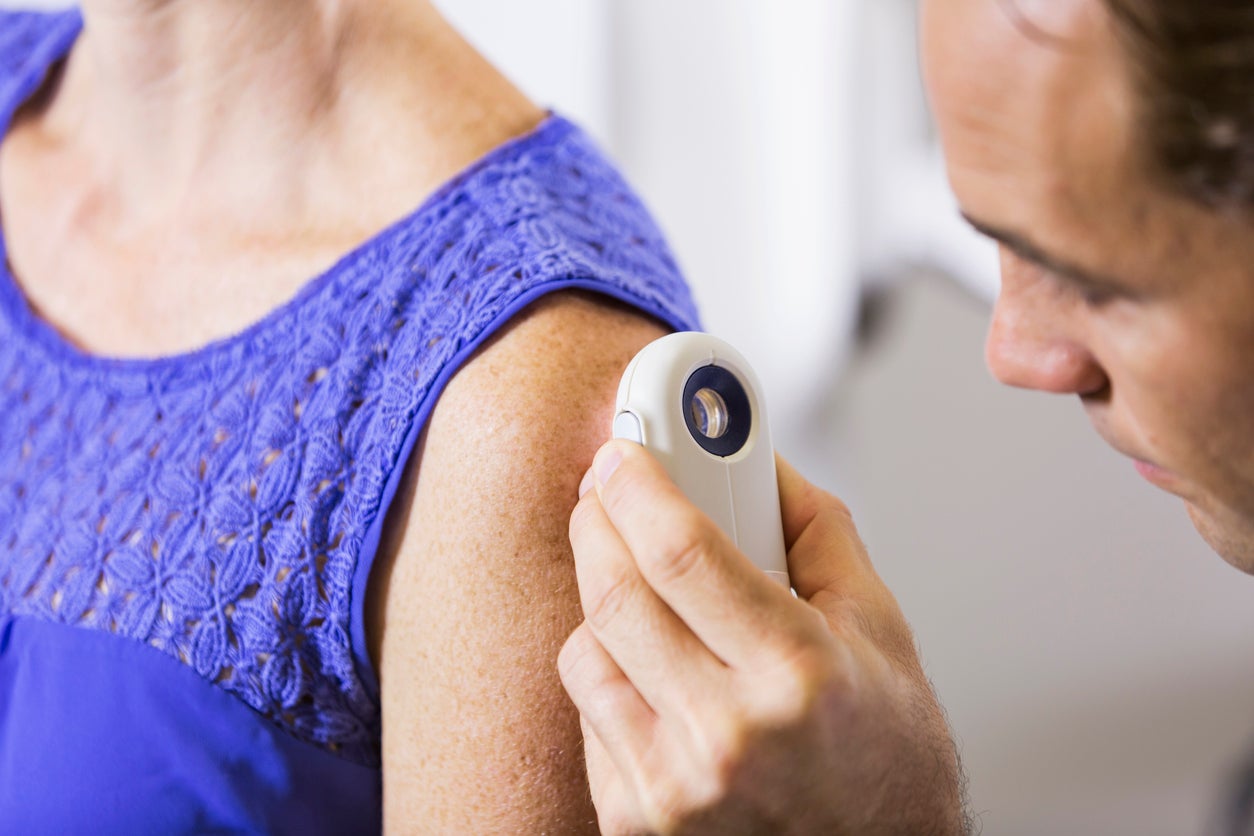Warmer summers fuelled by climate change prompt skin cancer warning
Melanoma can be potentially deadly and spread to other parts of the body, Matt Mathers reports


Hotter summers fuelled by climate change could cause an increase in the number of people in the UK getting skin cancer because they spend more time in the sun, experts are warning.
Tens of thousands of Britons have flocked to beaches and beauty spots this weekend to enjoy the warm weather. The Met Office issued an amber warning for "extreme heat" across most of England, with temperatures in many parts rising above 30C.
Scientists have warned that these hot and dry conditions could become more frequent as the Earth warms up to due climate change.
This means people are likely to spend more time outdoors, putting them at greater risk from dangerous cancers such as melanoma as they become increasingly exposed to the Sun’s ultraviolet (UV) rays.
Sarah Danson, professor of medical oncology at the University of Sheffield, is "definitely concerned" about cases increasing in the future.
"As a clinician treating patients with melanoma, I am definitely concerned that a sustained trend in hotter summers will lead to more cases of melanoma and more deaths from melanoma,” she told The Guardian.
Melanoma is a type of skin cancer that can spread to other parts of the body. The most common sign of melanoma is the appearance of a new mole or a change in an existing mole. The disease is caused by skin cells that begin to develop abnormally.
Exposure to UV light from the Sun is thought to cause most melanomas, but there is evidence to suggest that some may result from sunbed exposure.
On average there are around 17,000 new cases of melanoma each year in the UK, making up around 4 per cent of all cancer diagnoses.
Australia had the highest incidence rate of melanoma anywhere in the world in 2020, according to the World Cancer Research Fund International.
Julia Newton-Bishop, a clinician scientist leading the melanoma research group at the University of Leeds, said: “Melanoma is caused essentially by sunburn, and this weather is so extreme that I am concerned that sunburns will increase and later so will the incidence of melanoma.”
The incidence of skin cancer cases in the UK has increased by 140 per cent since the early 1990s.
One theory put forward for the increase is the rise in the number of people being able to afford foreign holidays in hot countries.
Karis Betts, a senior health information manager at Cancer Research UK, cautioned that it was too early to know whether the recent heatwave in the UK could cause a spike in cases in the coming years.
“It’s important to remember that it’s the ultraviolet rays from the sun rather than its heat that cause sunburn and skin cancer," she said.
"The sun can be strong enough to burn from mid-March to mid-October here in the UK, whether it’s a heatwave or not.”






Join our commenting forum
Join thought-provoking conversations, follow other Independent readers and see their replies
Comments